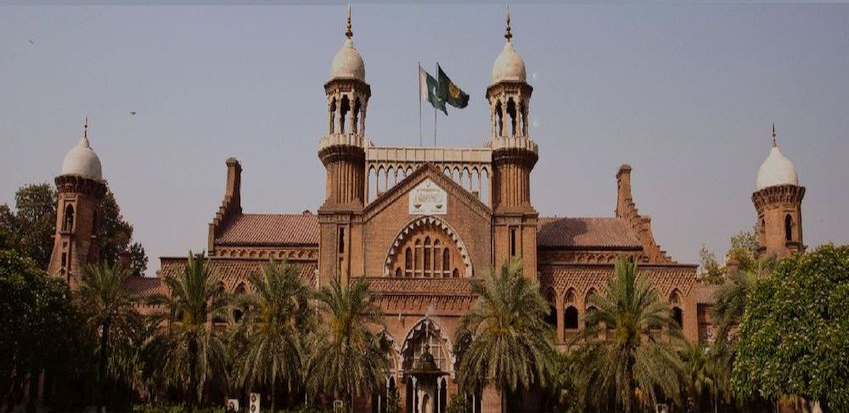The Vulnerable Pardanasheen Women must be protected from Undue Influence and Fraud in cases involving Property Transaction --- Lahore High Court, Lahore
Islamabad 12-09-2024: The Lahore High Court dismissed a revision petition filed by Muhammad Umar Farooq, who sought to challenge the judgments of the lower Courts in a property dispute involving his maternal grandmother, an elderly and illiterate widow. The Court upheld the decisions of both the Civil Judge and the Additional District Judge, Pir Mahal, who had ruled in favor of the respondent, Irshaad Bibi, finding that the sale of her property was procured through fraud and misrepresentation by her grandson.
The legal battle began when Irshaad Bibi, a widow in her eighties, filed a lawsuit for the cancellation of a sale mutation regarding her residential plot in Chak No. 334 GB, District Toba Tek Singh. The mutation in question, No. 672 dated November 7, 2018, transferred ownership of her property to Muhammad Umar Farooq, her maternal grandson.
Irshaad Bibi alleged that the mutation was fraudulently obtained by her grandson in collusion with his father, claiming she had never sold the property nor received the purported sale consideration of Rs. 350,000. She argued that, being illiterate and in a vulnerable position as an elderly pardanasheen woman, the mutation should be canceled as it was a product of fraud and undue influence.
On October 3, 2023, the Civil Judge, Pir Mahal, ruled in favor of the respondent, declaring the mutation fraudulent and ordering its cancellation. Umar Farooq’s subsequent appeal was dismissed by the Additional District Judge, Pir Mahal, on January 31, 2024, prompting him to file a revision petition in the Lahore High Court.
In its judgment, the Lahore High Court scrutinized the evidence presented by both parties. The Court emphasized that the burden of proof lay with the petitioner, Muhammad Umar Farooq, who was required to establish the legitimacy of the sale transaction due to his close familial relationship with the respondent and her dependent status. However, the Court found that the petitioner failed to present credible evidence to prove that the transaction was legitimate or that the sale consideration had been paid.
The Lahore High Court reiterated several key legal principles related to transactions involving pardanasheen (secluded) women:
- The Court cited the landmark case of Ghulam Farid and another Vs. Sher Rehman (2016 SCMR 862), which established that transactions involving pardanasheen women must be proven with stringent evidence, particularly regarding their knowledge of the transaction and the absence of fraud or undue influence.
- The Court also referred to Pervaiz Akhtar Vs. Mst. Farida Bibi (PLD 2023 SC 628), emphasizing the importance of providing independent legal advice to illiterate or secluded women in property matters to ensure their full understanding and consent.
The Court underscored that the transaction appeared to be clouded by undue influence and manipulation, especially given that Umar Farooq, who was living with the respondent, had exploited her vulnerability to execute the sale. The case law of Muhammad Naeem Khan Vs. Muqadas Khan (PLD 2022 SC 99) was referenced to illustrate the protection afforded to such women under the law.
The Lahore High Court noted that the petitioner was only 20 years old at the time of the alleged sale and had no independent source of income to pay for the property. Furthermore, the petitioner’s witnesses failed to substantiate the claim of an oral sale. No evidence was presented to demonstrate any negotiations or agreements leading to the transaction, further strengthening the respondent’s case that the mutation was obtained through fraudulent means.
After reviewing the arguments and evidence, the Lahore High Court found no legal or factual basis to interfere with the judgments of the lower Courts. The Court concluded that the petitioner had not only failed to discharge the burden of proof but had also failed to rebut the presumption of undue influence.
The revision petition was dismissed, reaffirming the cancellation of the sale mutation and protecting the rights of the elderly widow. The Court’s decision serves as a reminder of the judiciary’s role in safeguarding the rights of vulnerable individuals, particularly women in secluded or dependent positions, from exploitation in property matters.
The Lahore High Court’s judgment reinforces key legal safeguards in property transactions involving vulnerable parties, particularly elderly, illiterate, or pardanasheen women, setting a high bar for proving the legitimacy of such transactions.
Powered by Froala Editor








